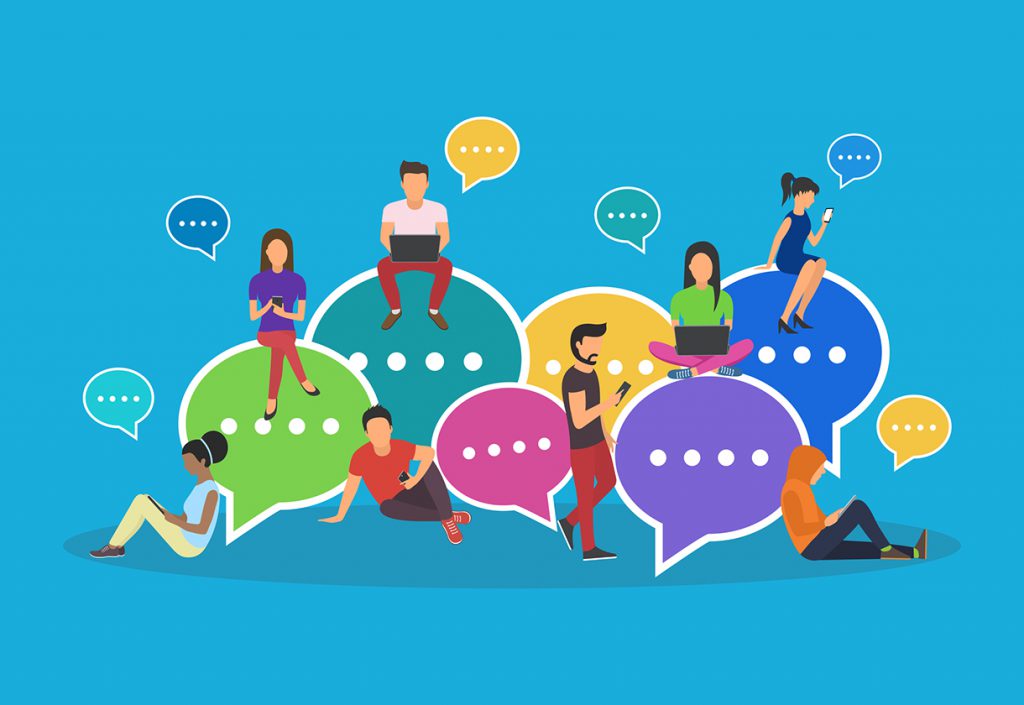Data Show No Evidence That Teens’ Social Media Use Predicts Depression Over Time

Longitudinal data from adolescents and young adults show no evidence that social media use predicts later depressive symptoms, according to research published in Clinical Psychological Science, a journal of the Association for Psychological Science. However, the findings do show that relatively higher depressive symptoms predicted later social media use among adolescent girls.
This research stands in contrast with recent claims that adolescents’ use of social media may lead to depression, claims based primarily on studies that examined associations between average social media use and average well-being measured at a single point in time.
“You have to follow the same people over time in order to draw the conclusion that social media use predicts greater depressive symptoms,” says lead author Taylor Heffer of Brock University. “By using two large longitudinal samples, we were able to empirically test that assumption.”
Beginning in 2017, Heffer and coauthors surveyed 6th, 7th, and 8th graders in Ontario, Canada once a year for two years. The researchers also conducted annual surveys of undergraduate participants, beginning in their first year of university over a span of 6 years.
To measure depressive symptoms, the researchers used the Center for Epidemiological Studies Depression Scale for the young adults and an age-appropriate version of the same scale for the adolescents. All participants answered two questions about their average daily hours spent on social media – one measuring weekday use and the other measuring weekend use. The participants also answered questions about other screen time, such as watching TV, and non-screen activities including doing homework and exercising.
Heffer and colleagues analyzed the data separately for each age group and gender.
The results showed that social media use did not predict later depressive symptoms among adolescents or college undergraduates. Rather, greater depressive symptoms predicted more social media use over time, but only among adolescent girls.
“This finding contrasts with the idea that people who use a lot of social media become more depressed over time. Instead, adolescent girls who are feeling down may turn to social media to try and make themselves feel better,” says Heffer.
Overall, the research suggests that the fear surrounding social media use and its impact on mental health may be premature.
“When parents read media headlines such as ‘Facebook Depression,’ there is an inherent assumption that social media use leads to depression. Policymakers also have recently been debating ways to tackle the effects of social media use on mental health,” says Heffer.
Evaluating whether fears about the impacts of social media have merit requires prospective longitudinal studies that allow researchers to examine whether it is social media use that predicts depressive symptoms (rather than the other way around), while controlling for other potential influences. As Heffer and colleagues note, individual differences in personality, motivation, and current well-being are likely to play a critical role in the relationship between media use and future well-being.
“There may be different groups of people who use social media for different reasons,” Heffer explains. “For example, there may be a group of people who use social media to make social comparisons or turn to it when they are feeling down, while another group of people may use it for more positive reasons, such as keeping in contact with friends.”
Examining the role that these differences play will help clarify the ways in which social media interacts with mental health, with implications for parents, policymakers, and healthcare professionals alike.
Coauthors on the research include Marie Good of Redeemer University College and Owen Daly, Elliott MacDonnell, and Teena Willoughby, all of Brock University.
T. Willoughby received funding for this study from Social Sciences and Humanities Research Council of Canada and Canadian Institutes of Health Research.





Comments
Interesting, but not really cause for jubilation. We can wonder whether social media cause depression, but there’s no doubt that many devoted users prefer the obsessive following and knee-jerk spread of the latest breathless “news”/fads/memes over having to interact with actual humans, or – heaven forbid! – think one’s own quiet and independent thoughts.
Such a thought-challenged hive-mind has much to do with how we ended up in our current political pickle, since such folk are so susceptible to the shiniest new object – aka the most confident and noisy con man.
I fear this damage is more worrisome, widespread, and lasting than any hypothetical link to depression, while being much harder to measure.
APS regularly opens certain online articles for discussion on our website. Effective February 2021, you must be a logged-in APS member to post comments. By posting a comment, you agree to our Community Guidelines and the display of your profile information, including your name and affiliation. Any opinions, findings, conclusions, or recommendations present in article comments are those of the writers and do not necessarily reflect the views of APS or the article’s author. For more information, please see our Community Guidelines.
Please login with your APS account to comment.